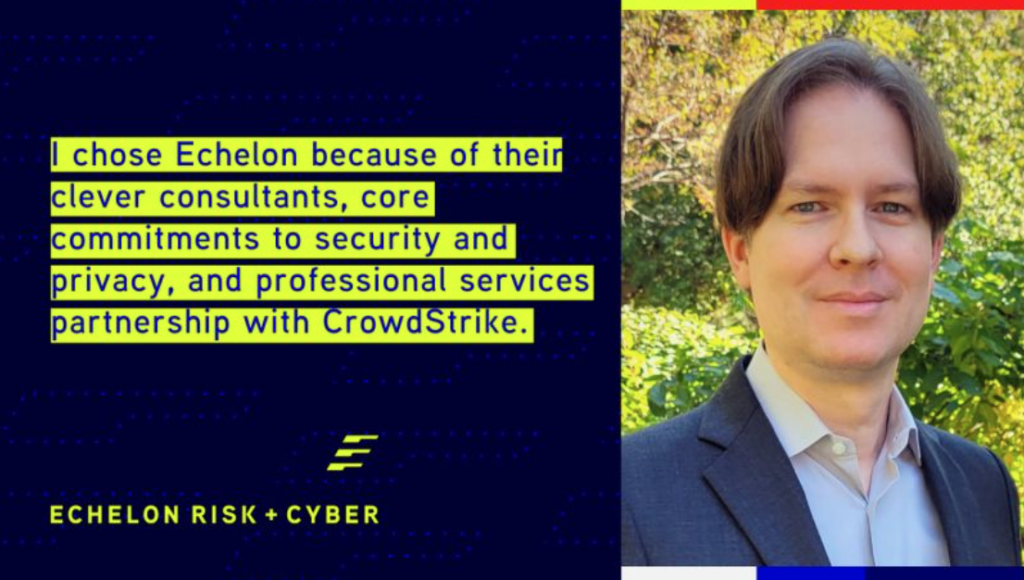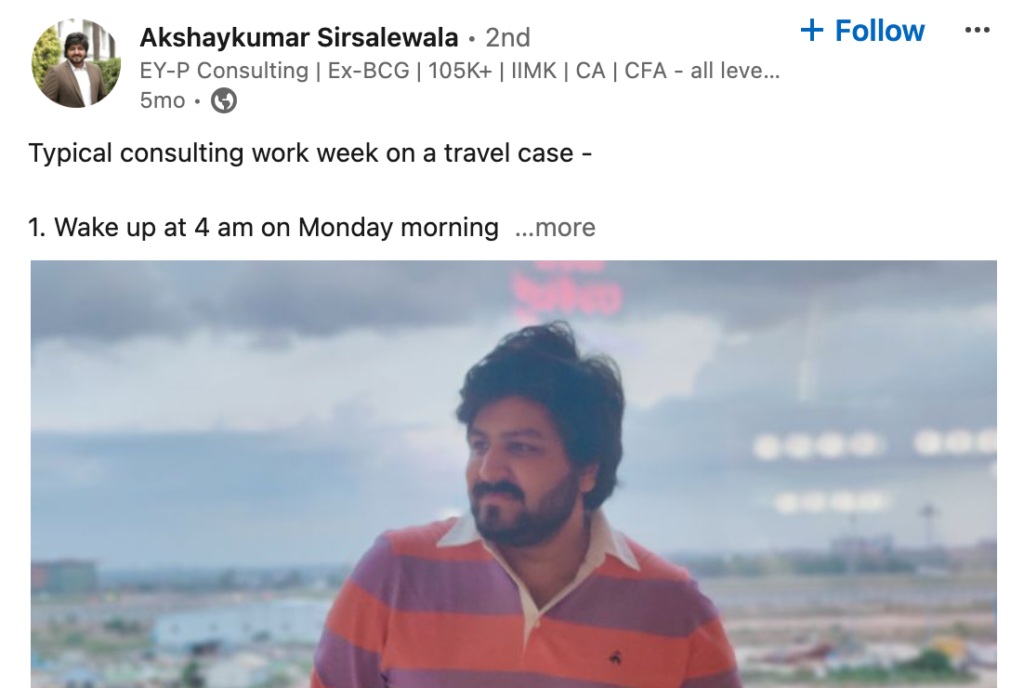You might have heard anecdotes about the busy, notoriously never-ending schedules of corporate consultants. Many might tell you that if you want a big paycheck and a fancy lifestyle, you need to forget about your sleep routine and private life.
But that’s not the only way. You can have a successful consulting career that makes good money while also being immensely rewarding—all while enjoying a great work-life balance.
The life of a consultant is not for everyone, but hopefully, after reading this article, you can decide whether it’s for you.
A Day in The Life of a Consultant
If you work independently, you have the freedom to manage your own schedule. No one will tell you whether you should write that project analysis at 6 AM or 6 PM, so long as it’s done.
One of the best things about working as a consultant is the variety you experience in your days, so while there really isn’t such a thing as a “typical” day in the life of a consultant, here’s an overview of what it roughly looks like.
6 AM: Your Morning Routine
If you want to maintain a high level of productivity in your days without compromising on your private life, it’s key to make your mornings count.
Jump on the treadmill or your yoga mat, have a champion’s breakfast with some brain-boosting supplements, or meditate yourself into peak performance.
Your morning routine will be key to getting yourself ready for business—and avoiding burnout in the long run.
8 AM: Your Biggest Priority
If you’re not jumping on a plane or in a cab to head to a client meeting straight away, you can use this time to tackle the most difficult or urgent task of the day.
This might be running research on key aspects of a case, writing a report, updating your professional website, preparing a client proposal, or publishing your next thought leadership piece on LinkedIn.
💡Pro tip: Speaking of protecting your time, Paperbell handles all the admin headaches so you can focus on delivering results for your clients.
10:30 AM: Emails and News
If you’re managing your own schedule, this might be a time when you organize your calendar, make a few calls, read up on industry news, and answer important emails.
If you have an assistant or VA, they can take some of these responsibilities off your shoulders, so you can check in with them over coffee about the updates they have for you.
12:00 PM: Time for Lunch
Midday, you might be heading to a lunch meeting with a client, sharing a meal with a mentor to pick their brain on a case, or simply using some quiet time to recharge and prepare for your afternoon meeting marathon.
1:00 PM: Check-in With Your Team
If you work solo without a team, this might be a good time to check in briefly with some clients. If you work in a team (or lead one), a brief daily meeting helps you get aligned on the status of projects, any challenges and wins present in the team, or important updates and roadblocks to solve together.
Even if you work on your own as a consultant, being part of an accountability group or think tank with fellow professionals can give you some wind behind your back to tackle even the most difficult days.
2:00 PM: Meetings, Meetings, Meetings
Hopefully, by now, you’re ready to smash your presentation and get some seriously mind-boggling problem-solving done for your clients.
You’ll pull a few consultant frameworks to dig deeper into business challenges and impress your clients with groundbreaking ideas. You’ll map out the business plan you’ve been working on for weeks and land a new client with a winning pitch.
That, or you’ll be bombarded with unexpected questions you don’t have the answers to (yet!) and be running from one location to another, realizing that you’ve accidentally booked your meeting an hour earlier. You might be catching up on emails and meeting agenda during your commute.
This is your chance to create an impact on the businesses of your clients.
6:00 PM: Reviewing Your Day
After you’re done with your meetings, it’s time to review what you could or couldn’t finish that day, shift around some priorities in your schedule, and plan for the following day.
A few more finishing touches on the emails and reports left off earlier during the day, and you can (hopefully) sign off for the day and wind down in the evening without any emergency calls.
[ Read: How to Start a Consulting Business: The 7 Key Steps (+ 5 Must-read Books!) ]
A Day in the Life of a Management Consultant
Management consulting is an umbrella term that covers multiple areas, such as strategy or operations consulting. In these specializations, you’ll be working closely with the C-suite or management team of companies, helping them formulate strategies and make key decisions about the future of their businesses.
[ Read: 34 Different Types of Consulting Services (And How to Pick Your Specialty) ]
These decisions can be costly and carry high risks, which can either give you the adrenalin to perform at your best or place immense pressure on you.
When you talk to the CEOs of top firms on a daily basis, a sharp, professional appearance and tons of preparation will be essential. You’ll be on your feet (or in front of the screen) presenting a lot, and the responsibility will be on you to guide organizational leaders through an unexpected crisis or roadblock in their business plans.
It’s not an easy career to lead. As a management consultant, you’ll need a high tolerance for stressful situations, the tenacity to push through when the going gets rough, and the humility to face your own shortcomings (because no one knows the answer to everything).
That said, if you find solving business problems all day stimulating and fun, this might just be the right career for you.
Here’s what a day of a management consultant may look like:
- 8:00 AM: Reviews the client’s quarterly revenue analysis and finalizes strategy recommendations for a new market entry.
- 10:00 AM: Presents a restructuring plan to the client’s executive team.
- 12:30 PM: Catches up on industry trends in the automotive sector over lunch.
- 1:30 PM: Leads a team meeting to align on the client’s operational improvements.
- 3:00 PM: Analyzes cost-cutting measures for a large-scale supply chain project.
- 6:00 PM: Updates key stakeholders on project milestones and signs off for the day.
For example, Yiwei Gu is a Managing Consultant at Michael Allen. Her day covers a range of activities, from gathering information and making recommendations to supporting team collaboration and ensuring client needs are met.

Each day, she balances tasks like:
- Preparing presentations
- Guiding clients through study designs
- Creating tools to address client-specific questions
She also frequently reviews team deliverables, edits reports, and clarifies strategies for ongoing projects, all aimed at delivering high-quality results on time.
A Day in the Life of a Cyber Security Consultant
What does a cyber security consultant do all day when their clients aren’t facing data breaches? Well, a lot.
They conduct audits, identify vulnerabilities, and advise on restructuring systems to protect companies from cyber-attacks. They help improve data security and develop strategies to safeguard against future threats.
Working in cyber security demands a unique skill set that’s high in demand. One of these skills is CompTIA, having CompTIA A+ Certification will provide you with the expertise that can help you get into the cybersecurity industry. If you have expertise in this field, you can get busy with projects soon after starting your career.
Of course, every job has its challenges.
As a cyber security consultant, you’ll be responsible for complex issues that probably an entire department couldn’t solve on its own. If a data breach happens, you might have to drop your lunch and head straight to the office to put out fires before they create more damage.
Overall, it’s a highly rewarding career (financially as well) for someone with system thinking and a solid background in technology combined with great communication skills.
Here’s what a day of a cyber security consultant may look like:
- 7:00 AM: Monitors network traffic for any unusual activity.
- 9:00 AM: Conducts a vulnerability scan on a client’s cloud infrastructure.
- 11:00 AM: Reviews a detailed security audit report with the client’s IT department.
- 12:30 PM: Runs a penetration test on a fintech client’s online payment system.
- 3:00 PM: Investigates a possible data breach on a retail company’s website.
- 5:00 PM: Drafts a remediation plan for the client after identifying security gaps.
- 6:30 PM: Prepares a post-breach report and outlines next steps for improving defenses.
For example, Blake Washer is a SIEM Engineer who works at Echelon.
He began his role there with an exciting start, heading to a major industry event in Las Vegas to get up-to-date training. Now back at work, he uses his expertise to help clients protect their systems, focusing on CrowdStrike’s security tools.

These tools help track and analyze potential threats, especially with advanced features for monitoring security data in real-time and spotting suspicious activity quickly.
His day-to-day involves learning more about these tools to better support clients in keeping their systems secure.
Life as a Traveling Consultant
Not all consultants are required (or willing) to travel to their clients’ locations, especially since the global impact of the pandemic on business communication. Still, many companies prefer to fly their consultants down to their premises.
If you’re a traveling consultant, you’ll often spend more time on planes than in meetings. You’ll need to master the art of working offline and squeezing the most out of those in-flight hours to prepare for cases.
Traveling across time zones can be taxing, so you’ll need to take good care of yourself and learn how to perform even with a chaotic sleep schedule.
Priority boarding, flying business class, expensive dinners, and staying in fancy hotels sound like an appealing fantasy, but that’s normally not how your career kicks off.
Before you prove your worth as a consultant and land that dream client, you’ll likely need to cover your own expenses or stay in cramped hotel rooms. You’ll be working from busy airports, waiting for delayed flights while trying to shake off your jetlag. As they say: No pain, no gain.
Akshaykumar Sirsalewala is a consultant who travels a lot. If he’s on a case with a remote client, he would wake up at 4 AM on Monday to catch a flight to the client’s location. He would get there around 10:30 AM and spend the work week there, then fly back Friday night.

He shared that “as a student, traveling for consulting work seemed glamorous. Five-star hotels, back-to-back flights, everything on the house, etc. As an adult, you realize that the reality is much different.”
Though their schedule might be intense, traveling consultants often find the variety and face-to-face collaboration in their projects rewarding. This dynamic experience keeps them engaged in their work.
The Reality of Being a Consultant
Like all professions, being a consultant has its pros and cons. You’ll have a great variety of cases to work on and each day might look different the next.
If you do it at a high level, you can get invitations to special business events and enjoy lavish benefits sponsored by your clients. You can develop expertise in various areas of business and help entrepreneurs realize their ambitious dreams.
On the downside, the lifestyle of a consultant can be ad hoc, and you may need to prioritize emergency calls and meetings more often than you’d want to. (We would certainly recommend running your consulting business on Paperbell to minimize admin headaches!)
So now that you’ve weighed your options, the only question left to answer is: Would you live the life of a consultant?

Editor’s Note: This post was originally published in May 2022 and has since been updated for accuracy.









